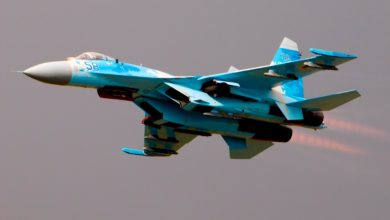
The ongoing conflict between Russia and Ukraine has caused immense suffering and instability, with no clear end in sight. The prevailing Western narrative of Ukraine’s perceived advantage is arguably a product of wishful thinking driven by the need to justify hefty military investments. However, it is more realistic to acknowledge the likelihood of an eventual stalemate and prolonged war of attrition.
History has shown that no war lasts forever. A war typically concludes either through unconditional surrender — an improbable outcome in the Russian-Ukraine war — or via a negotiated agreement varying from an armistice to a peace settlement.
The chief impediment to fruitful negotiations is the territorial dispute, coupled with deep-rooted mistrust and suspicion between Ukraine, the West, and Russia. Kyiv refuses to negotiate until Russia withdraws from the territories it has occupied, while Moscow remains adamant about retaining control of these regions.
This deadlock compels both sides to continue fighting, each hoping to gain enough ground to strengthen their negotiating position and force the other side’s hand. This impasse has created an insoluble problem, hindering any meaningful efforts to bring the parties to the negotiating table.
To break this deadlock and pave the way for a potential resolution, a novel and innovative approach must be considered, allowing each side to claim victory, maintain domestic support, and save face at the conflict’s conclusion.

Sovereign-Like Status
While such an unconventional solution may appear whimsical and challenging to envision, it is essential not to succumb to conventional thinking. Instead, we must persist in exploring creative ideas that could present a breakthrough.
One potential framework draws inspiration from the 1961 Vienna Convention on Diplomatic Relations. Under this convention, diplomatic missions enjoy a sovereign-like status, allowing them to fly their sending state’s flag despite operating within the host state’s general sovereignty.
Applying a similar notion to Ukraine, an imaginative solution could involve granting Russia an embassy-like sovereign status in the disputed Donbas region and Crimea while still recognizing Ukraine’s overall sovereignty.
This arrangement would enable each side to claim a measure of victory in the conflict. Kyiv could assert that it preserved its territorial integrity, while Moscow could maintain that it did not cede any territory.
Of course, this is only a broad framework, and numerous details would require careful negotiation and refinement. Nonetheless, the essence of this idea may offer a glimmer of optimism for finding a path out of the current impasse.

Determination
In conclusion, the Russia-Ukraine war is a complex and deeply entrenched conflict with no easy solutions. It demands a departure from conventional thinking and a willingness to explore uncharted territories of diplomacy.
An innovative approach, like the one proposed here, could unlock the current stalemate and initiate a genuine path toward peace.
As the world continues to seek an end to the suffering and unrest, let us remain steadfast in our pursuit of creative ideas and be open to exploring all possible avenues for resolution. Only through such determination and open-mindedness can we hope to find a lasting and just solution to this long-standing crisis.
 Raphael Lapin is an international relations scholar; a Harvard-trained negotiation, mediation, and dispute resolution specialist; and Professor of Law who teaches negotiation, mediation, and international conflict resolution at law school in Southern California.
Raphael Lapin is an international relations scholar; a Harvard-trained negotiation, mediation, and dispute resolution specialist; and Professor of Law who teaches negotiation, mediation, and international conflict resolution at law school in Southern California.
His website: www.lapinnegotiationservices.com
The views and opinions expressed here are those of the author and do not necessarily reflect the editorial position of The Defense Post.
The Defense Post aims to publish a wide range of high-quality opinion and analysis from a diverse array of people – do you want to send us yours? Click here to submit an op-ed.











